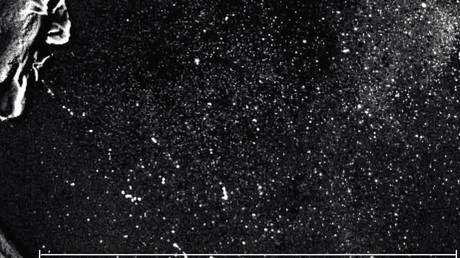
Scientists investigating Covid-19 ‘super-spreaders’ – those who transmit SARS-CoV-2 at a rate roughly four times higher than average – have uncovered additional characteristics that afford patients this grim ‘superpower.’
Researchers at Tulane University, Harvard, MIT and Massachusetts General Hospital identified a perfect storm of obesity, age, and more severe Covid-19 infection that can combine and cause people to breathe out far more virus-laden respiratory droplets than normal.
Their findings, which were published in the journal Proceedings of the National Academy of Sciences, were based on a review of data from both an observational study of 194 healthy people and an experimental study of primates infected with Covid-19.
Older study subjects with a higher body mass index and a more severe Covid-19 infection were found to exhale up to four times the number of respiratory droplets as others.
In startling figures that once again reinforce the Pareto principle (for many outcomes, roughly 80 percent of consequences come from just 20 percent of the causes), the researchers found that just 18 percent of participants produced 80 percent of the exhaled particles in the human study group. Put another way, one fifth of infected individuals are responsible for four-fifths of all transmissions.
Within the non-human group, researchers witnessed a decrease in droplet diameter to just one micron as the disease progressed, allowing more particles to be expelled, float in the air for longer and travel further, again dramatically raising the possibility of transmission to others in the vicinity. The increase in aerosol droplets exhaled was also witnessed in asymptomatic cases.
“We’ve seen a similar increase in droplets during the acute infection stage with other infectious diseases like tuberculosis,” said Chad Roy, Ph.D., corresponding author of the study, and director of infectious disease aerobiology at the Tulane National Primate Research Center.
“It seems likely that viral and bacterial infections of the airway can weaken airway mucus, which promotes the movement of infectious particles into this environment.”
Think your friends would be interested? Share this story!




